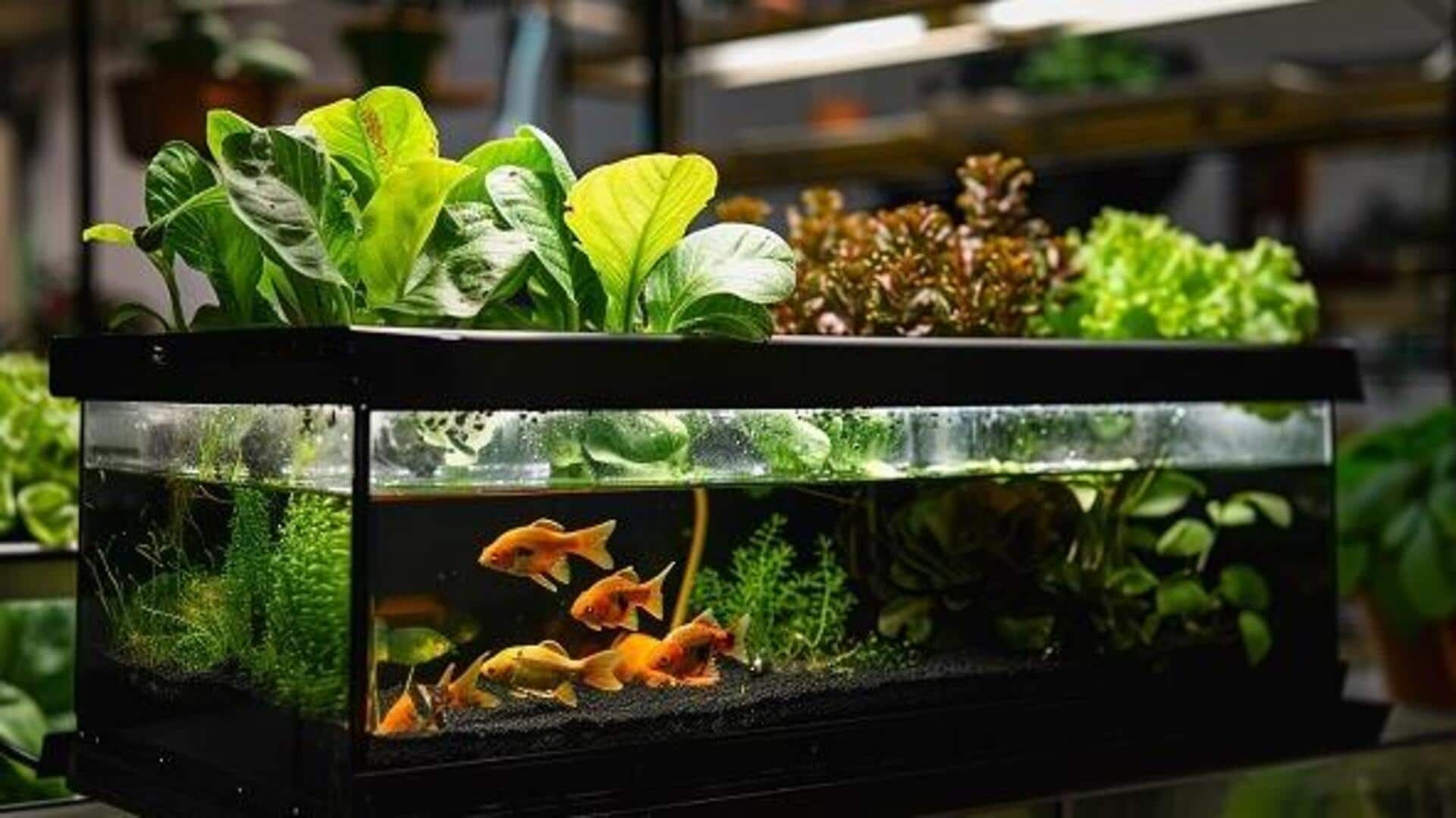
Hosting a captivating indoor aquaponics workshop event
What's the story
Indoor aquaponics combines fish farming and soil-less plant cultivation, offering a revolutionary model for sustainable agriculture. Hosting a workshop on this topic not only raises awareness about sustainable living but also empowers attendees with the skills to establish their own indoor aquaponics systems at home. This guide provides a comprehensive roadmap for planning a successful and engaging indoor aquaponics workshop event, ensuring participants acquire both theoretical understanding and hands-on experience.
Venue
Selecting the perfect venue
Selecting the appropriate venue is crucial for the success of your workshop. Ideal spaces should facilitate both theoretical discussions and practical aquaponics exercises. Venues with an existing setup allow attendees to witness a live system, which significantly aids learning. Ensure good ventilation, adequate tables for hands-on work, and consider the venue's accessibility, including parking and public transport connections.
Curriculum
Crafting an engaging curriculum
Start your workshop with a strong foundation: introduce aquaponics, emphasize its sustainability, and outline the benefits. Delve into the technical stuff: system design, water chemistry, and choosing the right plants and fish. Include hands-on experience: don't just tell them, show them! Let them roll up their sleeves and get their hands dirty setting up or maintaining a small-scale system. Hands-on activities are crucial! They help cement the theory you've taught.
Supplies
Sourcing quality supplies
For a practical workshop, there's no substitute for quality supplies. You'll require a range of materials including fish tanks, grow beds, water pumps, and pH test kits. Contact local suppliers or online retailers with a focus on aquaponics supplies. Buying in bulk can often lead to discounts, so plan your shopping list well in advance. If buying outright is not possible, consider renting equipment.
Marketing
Marketing your event effectively
To attract attendees, you need a strong marketing strategy. Leverage social media platforms like Facebook and Instagram to reach out to people interested in sustainable living or gardening. Create excitement with teaser videos and educational posts about aquaponics. Don't forget to use traditional methods too! Hand out flyers at community centers or local gardening stores to reach a wider audience.
Engagement
Ensuring participant engagement
Maintaining participant engagement is crucial for a successful workshop. Include interactive components such as Q and A opportunities following theoretical sections and collaborative discussions addressing common aquaponic challenges. Providing attendees with take-home resources like step-by-step instructions or lists of recommended materials will allow them to extend their learning experience beyond the workshop.